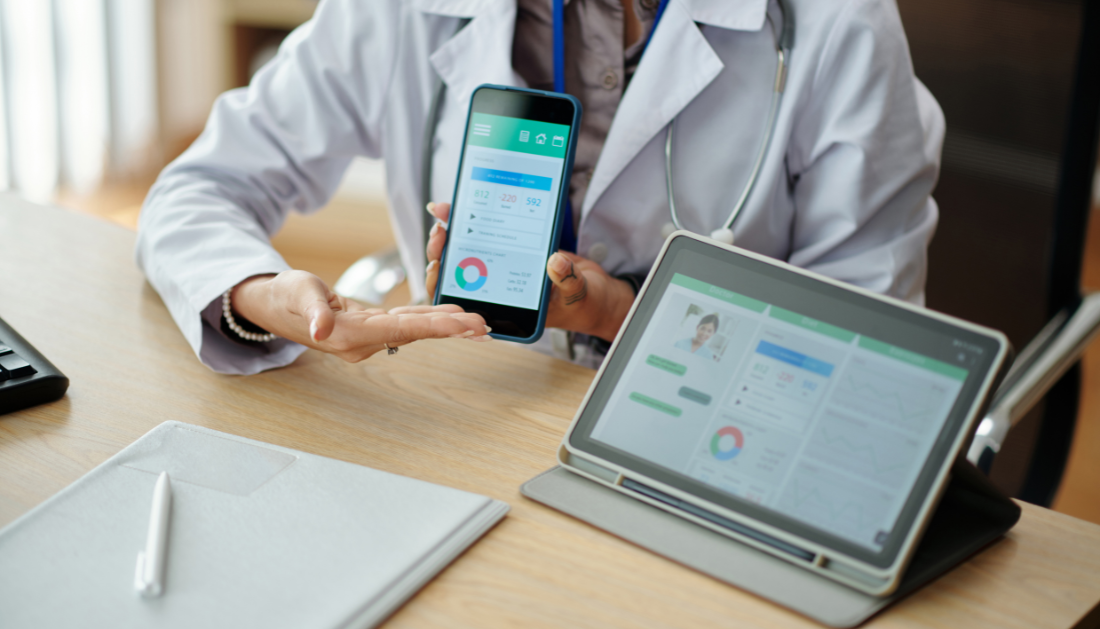

The World Health Organization (WHO) and the European Union (EU) have announced a strategic partnership to improve digital health systems across sub-Saharan Africa, aiming to expand the Global Digital Health Certification Network (GDHCN). This collaboration is expected to enhance health security, streamline vaccination tracking, and improve pandemic preparedness across the region.
Driving Digital Health Transformation in Africa by WHO
Under the new agreement, which includes an €8 million EU grant spanning 2025 to 2028, WHO and the EU will work closely with countries to bolster their national health systems through digital innovation. The GDHCN allows countries to securely verify digital health credentials, including nationally approved vaccination certificates, across borders. This system builds upon the European Union Digital COVID Certificate (EU DCC), which enabled verification of COVID-19 vaccination, testing, and recovery for international travelers. Currently, only four countries in the African Region, Benin, Cabo Verde, Seychelles, and Togo, participated in the EU DCC. The GDHCN aims to broaden this reach, making cross-border verification more accessible and reliable.
WHO will provide technical and policy expertise, collaborating with regional partners such as the Africa Centres for Disease Control and Prevention (Africa CDC). These efforts will support national initiatives to digitize health records, strengthen interoperability, and enhance public health decision-making.
Explore All Public Health CME/CE Conferences and Online Courses
Securing Health Data and Empowering People
A core focus of the GDHCN is privacy, security, and data protection. Participating countries maintain control over personal health records, ensuring they are accessible only to authorized users. WHO does not have access to individual health data, preserving patient confidentiality while facilitating trusted, interoperable health systems.
The network supports countries in creating portable, secure digital health records, which can be accessed by healthcare professionals during routine care or health emergencies. By enabling cross-border verification of medical credentials, the GDHCN also helps reduce fraud and simplifies compliance with international health regulations, including the International Certificate of Vaccination or Prophylaxis (ICVP/Yellow Card).
Strengthening Health Security and Pandemic Preparedness
This partnership also aligns with the EU Global Gateway strategy and the Team Europe Initiative on the EU-AU Health Partnership. By investing in digital infrastructure, training, and system interoperability, the collaboration strengthens regional health security, facilitates real-time data sharing, and supports resilient, person-centered health systems. Clinicians, healthcare administrators, and policy makers in sub-Saharan Africa can expect improved access to reliable health information, more coordinated care, and stronger mechanisms for responding to public health emergencies.
This joint EU–WHO initiative represents a landmark step in digital health transformation, ensuring sub-Saharan Africa is better equipped for current and future health challenges. By expanding the GDHCN, countries can provide secure, portable health records, enhance vaccination tracking, and improve pandemic preparedness, ultimately benefiting both healthcare systems and the communities they serve.
Source:
more recommended stories
 AI Predicts Chronic GVHD Risk After Stem Cell Transplant
AI Predicts Chronic GVHD Risk After Stem Cell TransplantKey Takeaways A new AI-driven tool,.
 Pediatric Crohn’s Disease Microbial Signature Identified
Pediatric Crohn’s Disease Microbial Signature IdentifiedKey Points at a Glance NYU.
 Rising Measles Cases Prompt Vaccination Push in NC
Rising Measles Cases Prompt Vaccination Push in NCKey Highlights 15 confirmed Measles cases.
 High-Fat Diets Cause Damage to Metabolic Health
High-Fat Diets Cause Damage to Metabolic HealthKey Points Takeaways High-fat and ketogenic.
 Chronic Brain Compression Triggers Neuron Death Pathways
Chronic Brain Compression Triggers Neuron Death PathwaysKey Takeaways Chronic brain compression directly.
 Texas Medical Board Releases Abortion Training for Physicians
Texas Medical Board Releases Abortion Training for PhysiciansKey Takeaways Texas Medical Board has.
 Needle-Thin Brain Implant for Layer-Specific Brain Research
Needle-Thin Brain Implant for Layer-Specific Brain ResearchKey Takeaways Researchers have developed a.
 Can Too Many Antioxidants Harm Future Offspring?
Can Too Many Antioxidants Harm Future Offspring?Key Takeaways High-dose antioxidant supplementation in.
 Human Antibody Drug Response Prediction Gets an Upgrade
Human Antibody Drug Response Prediction Gets an UpgradeKey Takeaways A new humanized antibody.
 Pancreatic Cancer Research: Triple-Drug Therapy Success
Pancreatic Cancer Research: Triple-Drug Therapy SuccessKey Summary Spanish researchers report complete.

Leave a Comment